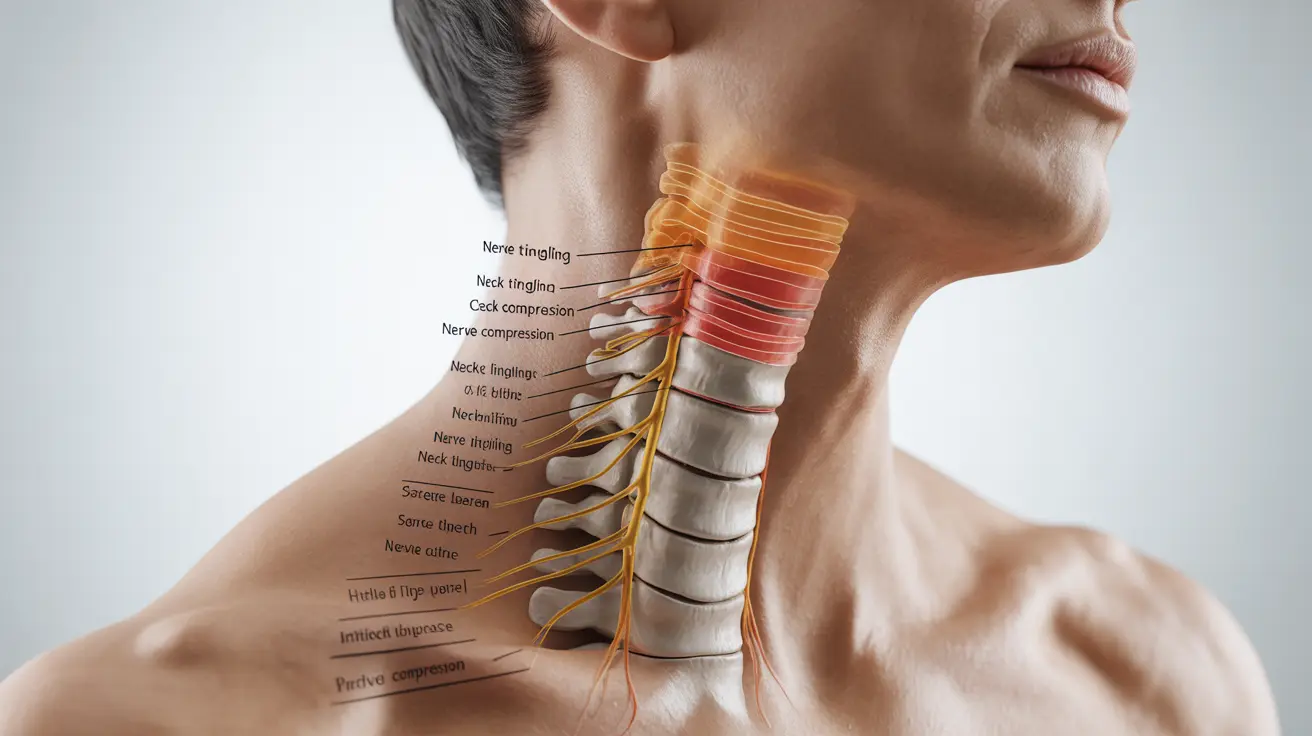Experiencing tingling sensations in your neck can be both uncomfortable and concerning. This sensation, which may feel like pins and needles or a prickling feeling, often signals underlying issues that require attention. Understanding the causes and available treatments can help you manage this condition effectively and know when to seek medical help.
Common Causes of Neck Tingling
Neck tingling can stem from various conditions, ranging from minor muscle tension to more serious neurological issues. Here are the primary causes:
Cervical Spine Problems
The most frequent cause of neck tingling is compression or irritation of the nerves in the cervical spine. This can occur due to:
- Herniated discs
- Cervical spondylosis
- Spinal stenosis
- Degenerative disc disease
Poor Posture and Muscle Tension
Extended periods of poor posture, particularly during computer use or smartphone browsing, can lead to muscle tension and nerve compression, resulting in tingling sensations.
Medical Conditions
Several underlying health conditions may cause neck tingling:
- Multiple sclerosis
- Diabetes
- Fibromyalgia
- Peripheral neuropathy
Diagnosing the Root Cause
Healthcare providers typically use several methods to determine the source of neck tingling:
- Physical examination
- Neurological tests
- Imaging studies (MRI, CT scan)
- Nerve conduction studies
Treatment Options
Conservative Treatments
Many cases of neck tingling respond well to conservative treatment approaches:
- Physical therapy
- Gentle stretching exercises
- Posture correction
- Over-the-counter pain medications
- Heat and cold therapy
Medical Interventions
For more severe cases, medical treatments may include:
- Prescription medications
- Steroid injections
- Surgical intervention (in severe cases)
Prevention and Self-Care
Several lifestyle modifications can help prevent and manage neck tingling:
- Maintaining good posture
- Regular exercise and stretching
- Ergonomic workplace setup
- Stress management techniques
- Regular breaks from prolonged sitting
When to Seek Medical Attention
Certain symptoms warrant immediate medical attention:
- Sudden onset of severe tingling
- Weakness in arms or hands
- Loss of bladder or bowel control
- Tingling accompanied by severe headache
- Symptoms following head or neck trauma
Frequently Asked Questions
What are the most common causes of tingling in the neck? The most common causes include nerve compression, poor posture, cervical spine problems, and underlying medical conditions such as diabetes or multiple sclerosis.
How can I tell if neck tingling is due to a pinched nerve or something more serious? A pinched nerve typically causes localized symptoms and may improve with position changes. More serious conditions often present with additional symptoms like weakness, severe pain, or problems with coordination. Professional medical evaluation is necessary for proper diagnosis.
What treatments are available to relieve tingling and numbness in the neck? Treatment options range from conservative approaches like physical therapy, stretching, and over-the-counter medications to more intensive interventions such as prescription medications, steroid injections, or surgery in severe cases.
Can neck tingling spread to the arms or hands, and why does that happen? Yes, neck tingling can spread to the arms and hands because nerves that originate in the cervical spine travel down through the arms. When these nerves are compressed or irritated in the neck, symptoms can radiate along their path.
Are there lifestyle changes or exercises that can help prevent or reduce neck tingling? Yes, maintaining good posture, regular exercise, proper ergonomics, stress management, and specific neck stretches can help prevent and reduce neck tingling. Regular movement breaks and proper sleeping positions are also beneficial.




